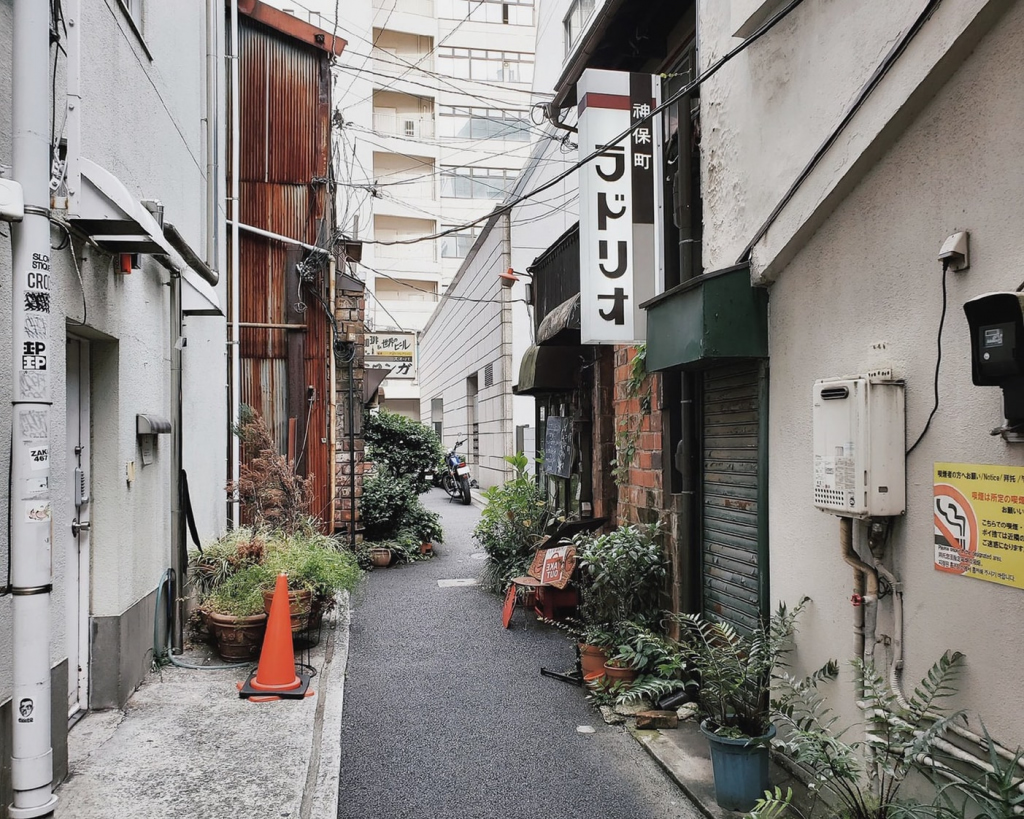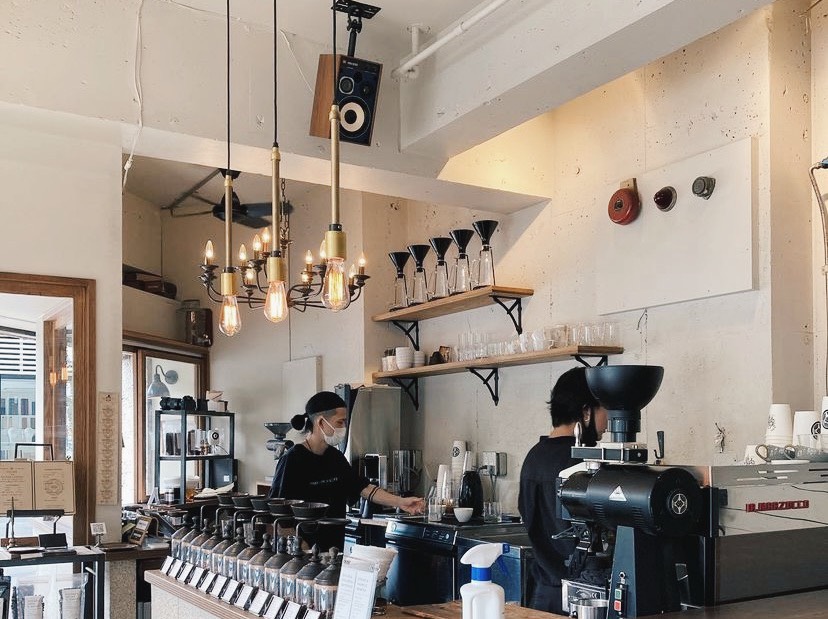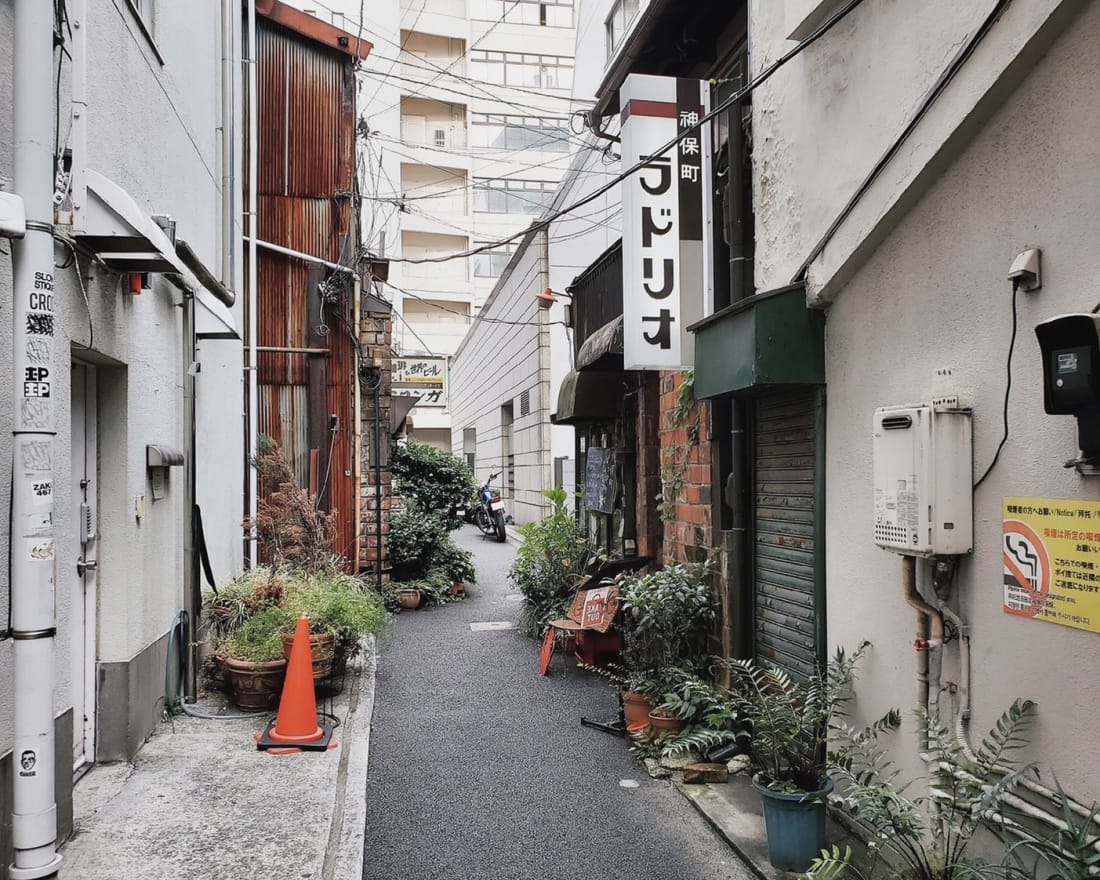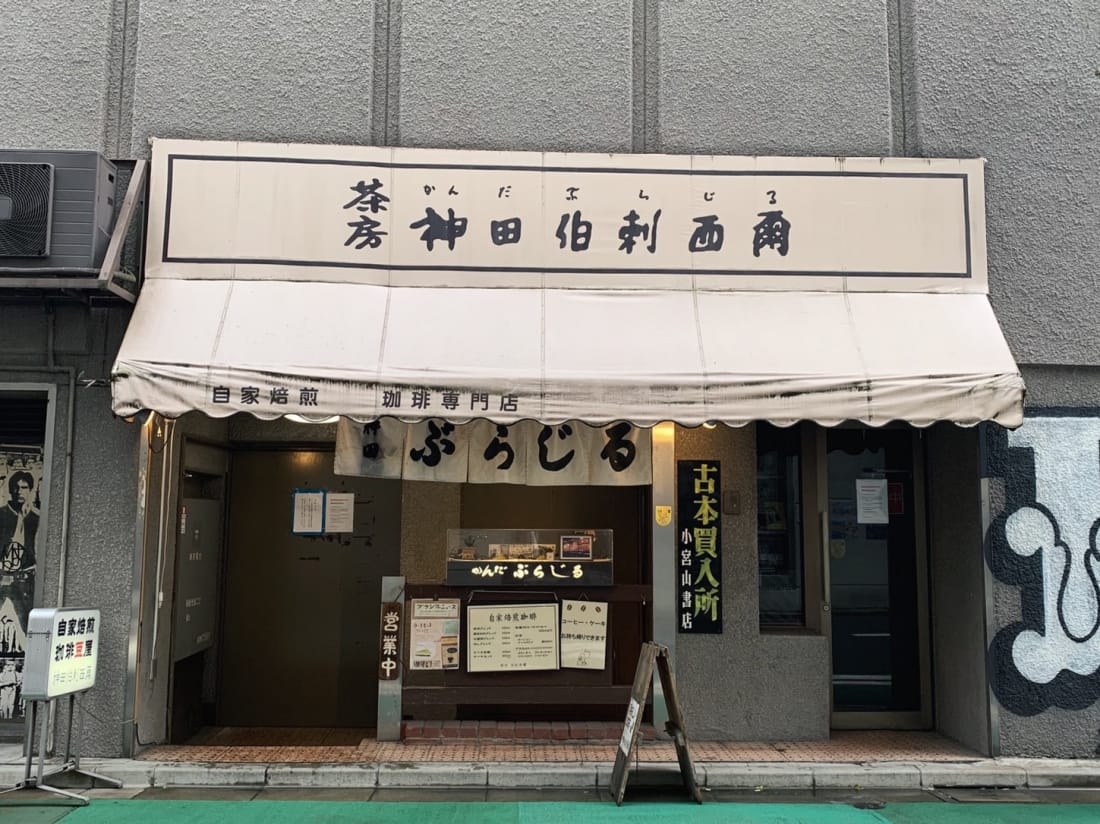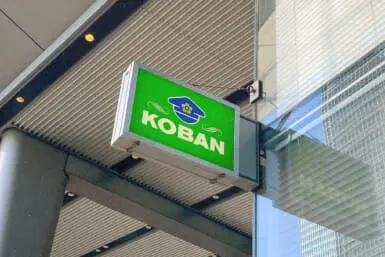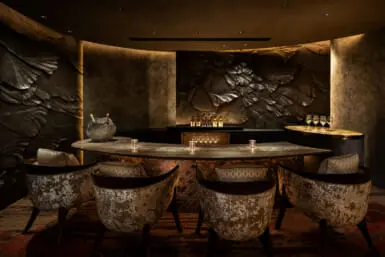Food and literature were once exclusive affairs in Tokyo, but that was before a former publisher named Shigeo Iwanami decided to build a bookstore in the fire-engulfed area of Jimbocho. What came after was the soulful district we know today: a cultural book town with a legit coffee game. Dotted around the neighborhood and cramming the Yasukuni and Hakusan Street are 200 secondhand bookstores stacked with time-worn novels, vintage magazines, Edo woodblock prints and adult graphics.
Suffice to say, the area also boasts many well-established kissaten (Japanese coffee shops) and hip cafés. The baristas know their beans, pour-overs mean serious business and locals grow particular about their favorite cafe. What defines these coffee shops is hard to pin down but, perhaps in many ways, a cup of drip coffee at one of the tumbledown streets of Jimbocho represents the district’s soulful dispositions — simple and unassuming on the surface and yet so dearly nostalgic. Really, no one should settle for less. Here we take a look at some of the best coffee shops in Jimbocho.
1. Glitch Coffee & Roaster
Two tables, eight stools and limited outdoor seating mean this isn’t the best option for long study sessions. That said, it’s clearly doing something right as self-proclaimed coffee geeks flock to this trendy café. From its whitewashed walls to wooden countertops and the enormous Probat roaster sat in the communal space, stepping into Glitch Coffee feels like entering a retro factory. Don’t be fooled by the laidback ambiance, though — it’s not just another slice of trendy addition in a city crawling with modern chain
It boasts an impressive lineup of single-origin offerings and there’s no settling for mediocrity. Owner Kiyokazu Suzuki, who won the Japan AeroPress Championship in 2015, believes in light-roasting each selection in-house. This brings out the full flavor of the beans (hence, the Probat). Blends for espresso-based drinks are rotated. Some days the beans are from the Gesha Village in Ethiopia, other days they’re from Kenya. The precision that goes into making them, though, never changes. For someone new to the scene, it can be tempting to stick to the good old latte. Yet, after a thorough explanation from one of the baristas, you may be feeling more adventurous. It’s a great chance to sit back, relax and enjoy an impeccably roasted and exotic Kinto pour-over coffee alongside a flaky almond croissant. Heavenly. Map.
2. Kanda Coffee
Tucked in a corner of an intersection, their chalkboard-written sign is easy to miss for anyone in rush for a caffeine fix. Then again, drinks at Kanda Coffee are made to be enjoyed slowly, like a nudge to let life return to a manageable pace. The coffee specialist has all the constituent elements of a charming kissaten, with dark paneling, elaborate light fixtures and baristas attired in crisp shirts. Here, locals-turned-regulars know what they want: no-frills coffee with some light-bites. For many this is then followed by a read of the daily newspaper in their favorite spot. Altogether, there is a vibe that’s less a bar than a place where food and drinks act as a vehicle for great conversation. The owner, too, is said to be very particular about the store’s jazz playlist.
A cup of drip coffee here is very reasonable (about ¥350), particularly if you consider the attention-to-detail that goes into the store’s home-roast origins. The shop allows you to choose between the different beans from Guatemalan El Injerto to Ethiopian Yirgacheffe. The baristas also go above and beyond to explain the character of each variety. For those wanting more, Kanda Coffee sells its coffee beans in-store and online. This includes its well-known Geisha blends. Map.
3. Ladrio
You’ll struggle to find a time when Ladrio is empty. For such a secluded kissaten, the place retains a steady cadre of patrons. Look through the small hazy windows and you’ll soon understand why. This is a place rich in history. Opened in 1949, it’s one of the oldest coffee establishments in the area. With its classic old red bricks, dimly lit vintage lights and dark wooden furniture, Ladrio exudes a soft and modest atmosphere. As well as a handwritten menu, there’s a bookshelf and the iconic cow logo designed by a long-time regular. Meals are simple yet wholesome, including favorites such as Napolitan and chicken curry.
In addition to its history and décor, Ladrio is probably most well-known for introducing the Vienna Coffee to Japan. The shop’s signature drink is made by preparing espresso generously topped with whipped cream. The previous owner was reportedly told about the beverage by a professor who visited Austria. It remains the store’s most popular item. A lazy coffee shop by day, Ladrio turns into a bar in the evening. Map.
4. Kanda Burajiru
Built in 1972, Kanda Burajiru is the kind of place people think of when they hear traditional coffee house, and rightfully so. Largely unchanged since its opening, it has a sentimental feel that’s loved by locals and newcomers. Located in a sleepy alleyway just a short walk from Jimbocho Station, you’ll find the shop’s outward appearance doesn’t do the interior justice. The washi partitions, Japanese sunken hearth, pendulum clock and earthen plaster walls makes the underground kissaten a living museum of Japan’s long-loved coffee culture.
True to its moniker (Burajiru is the Japanese word for Brazil), the café uses beans mostly from South America’s largest country as well as nearby coffee-growing regions such as Colombia, Peru and more. From the well-balanced taste of San Jose to the fruity aroma of Mocha Mattari, the menu includes a brief description of the origin of each coffee. Only when you’ve picked a “straight coffee” of choice will they start to freshly ground the beans and roast them using a traditional open-fire method. There are also some amazing options to go with your drink including a light and airy chiffon cake, melt-in-your-mouth baked cheesecake and a rich cognac chocolate cake. Map.
View this post on Instagram
5. Kissako
Stroll along Hakusan Street towards Suidobashi and slip into a back alley of Jimbocho. You’ll find the striking blue wood-paneled exterior of Kissako, partly framed in with untamed ivy and conspicuously sandwiched between two older buildings. It is certainly more fashionable, and quite the trajectory, than most old-school coffee shops. Step inside, though, and you will be greeted with the same down-to-earth atmosphere for a perfect book reading. In fact, the specialty coffee shop resembles more of a living room than your run-of-the-mill cafe.
Kissako is best known for its homemade cheesecake, which is the quintessential pairing for your caffeinated beverage (the shop insists that both baked and rare cheesecake are equally as good). On the second floor, an old-fashioned room, complete with tatami mats, is available for customers to use for up to two hours. If you’re looking for an instant pick-me-up, however, there’s a small takeout window for an on-the-go iced coffee or latte. Map.

